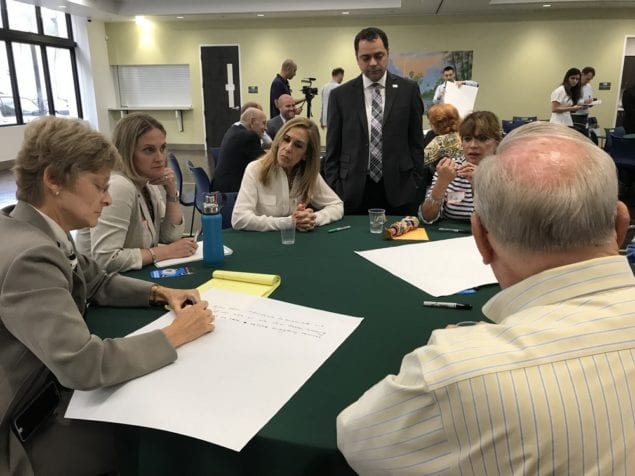
The U.S. Mayors Challenge is an annual invitation by Bloomberg Philanthropies for cities nationwide to produce bold, innovative solutions to the tough and complex challenges they face.
Through hard work and dedication, Coral Gables was chosen as a finalist among 35 municipalities this year, by applying cutting-edge science and logistics to address the problems the city has faced this past hurricane season.
With an intelligent and inventive union of hardware and software technology, in collaboration with the University of Miami, Coral Gables is developing a smart power micro-grid system, with the goal of weaning the city off third-party energy dependence in the event of an emergency and providing triple redundancies for power supply required for critical public safety services.
Hurricanes are dangerous and impending threats that have the capacity to cause catastrophic damage and disruption to essential services and resources, sometimes multiple times per year. And weather experts agree that climate change is contributing to more powerful storms as the new normal. Last year’s Hurricane Irma was a prime example of the tremendous logistic and technical issues associated with responding to the effects of a hurricane.
Many areas of Coral Gables in particular were affected by both the immediate physical damage, mostly attributed to landscaping and tree debris that blocked roads and damaged property, and the logistical challenge to restore service to businesses and residences in a timely fashion.
Facing these recurrent hurricane fears is a challenge that the City of Coral Gables is taking head on.
As a participant in the 2018 U.S. Mayors Challenge, the city is investing in a longterm solution that will grow in sophistication and expand in scope over time to make critical infrastructure more resilient and state-of-the-art.
Relying on third parties and singular providers for essential services in cities like Coral Gables can result in day-to-day inefficiencies. During a wide-scale outage, any flaws in the system are drastically amplified and recovery is delayed, as residents and business owners in Coral Gables experienced in the aftermath of Hurricane Irma.
To address these concerns, Dr. Nurcin Celik from the University of Miami developed smart, solar powered micro-grids that can conserve, supply, and redirect power depending on real-time data in the event of an emergency. Coral Gables now is in the final stages of working with the University to “test, learn and adapt” this innovative technology. A final prototype application is being submitted to Bloomberg as part of the Mayor’s Challenge in the hopes that Coral Gables is a winner of a major funding prize that will make this micro-grid concept a reality not only for our community’s benefit but for other hurricane-prone areas of the world as well.
Consisting of a central power source, sustained with renewable solar energy, and an intelligent software application that consumes and analyzes data from micro-grids, this new system will serve as the cornerstone of the city’s response against future service outages in the aftermath of a disaster, and will carry Coral Gables into an era of ultimate resilience, making us stronger and fear-free of any hurricanes.






